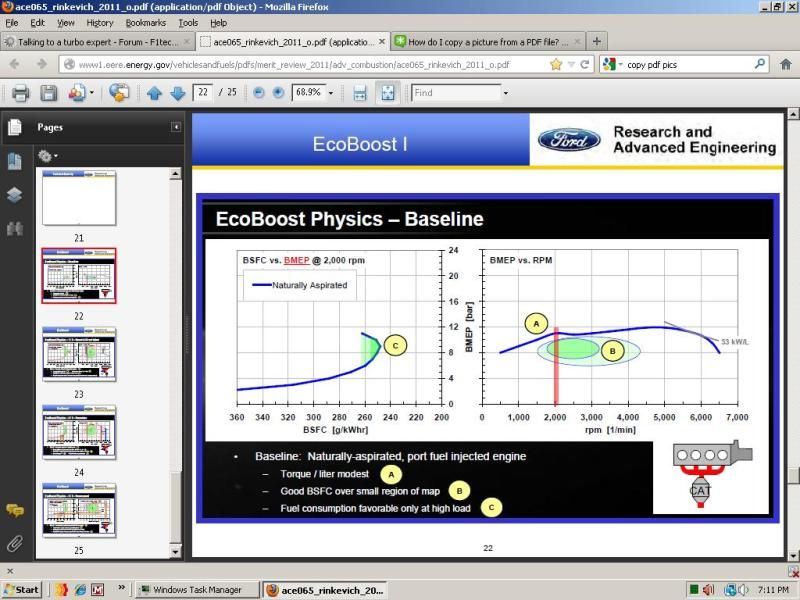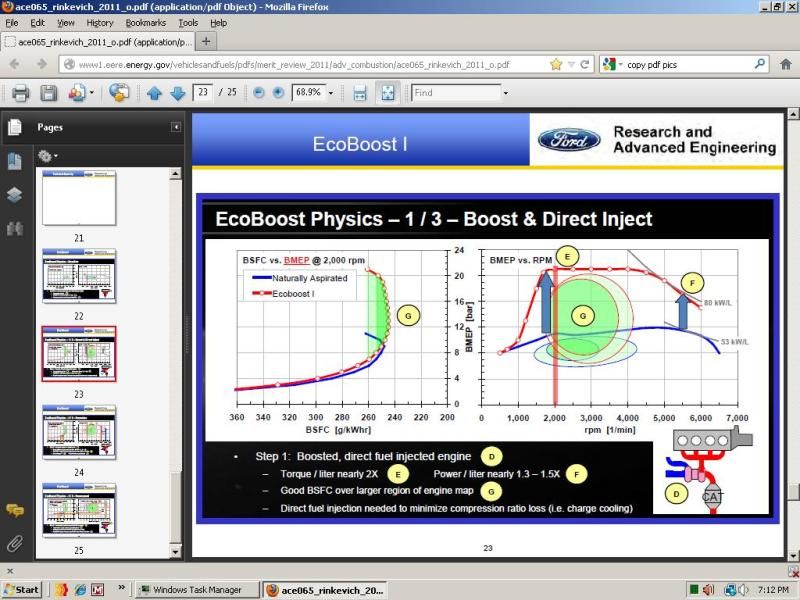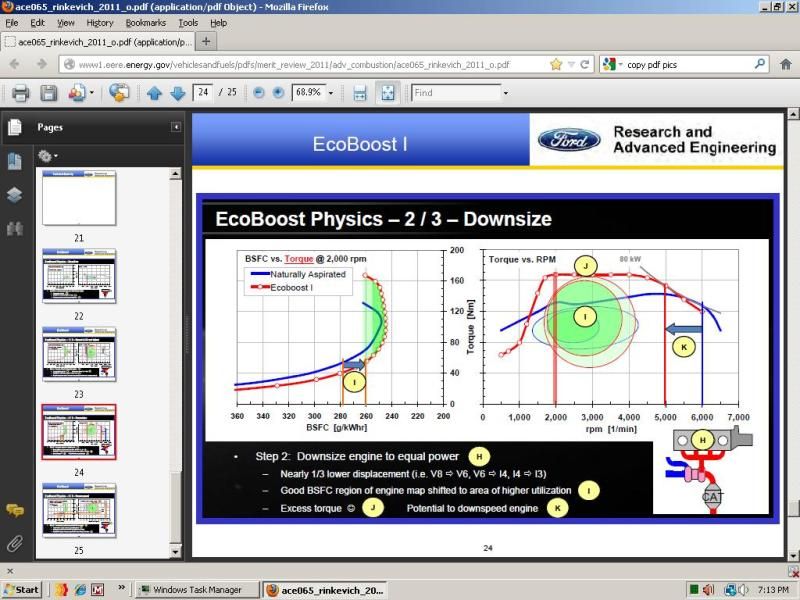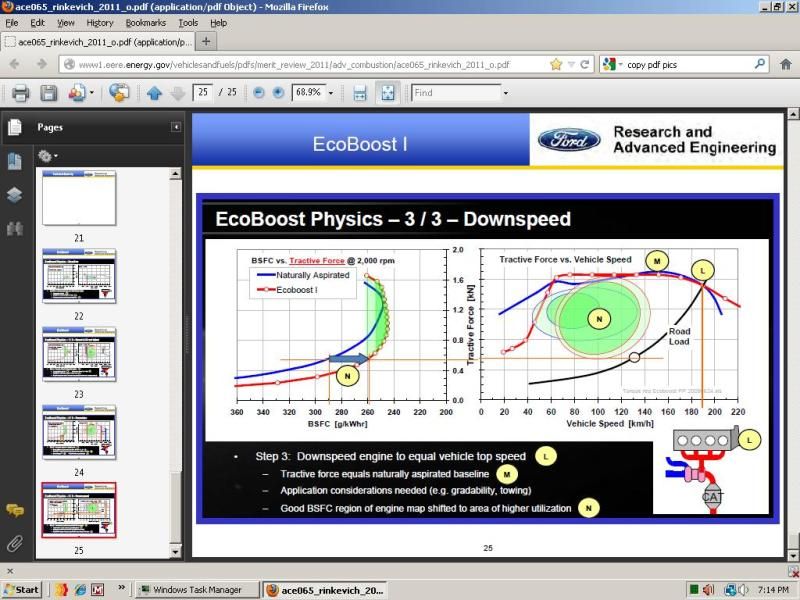olefud wrote:Granted there’s a lot of hype for turbocharging. And granted that turbocharging yields more power per unit displacement. But the thought that driving a turbocharger with normally wasted exhaust heat energy sans compounding improves efficiency is just hype. If energy doesn’t do work outside of the system, i.e. propel the vehicle, it’s not improving thermal efficiency. The energy harvested by the turbocharger is used within the system (engine), not to do measurable work –efficiency-, but instead to enhance the engine’s ability to do work -power.pgfpro wrote:http://autospeed.com/cms/title_Turbod-f ... ticle.html
"Implications
So let’s take a step back. In the comparison shown above of the two 2-litre engines, the turbo engine has better fuel economy, better CO2 emissions, 50 per cent more bottom-end power and 34 per cent more top-end power.
In short, it’s better in every respect (except, it must be said, cost to build)."
With computer control of engine operating parameters it’s now possible to manage engine operating conditions to greatly optimize efficiency and power, often concurrently. For instance, it’s been mentioned in this thread that 14:1 compression ratio is being used in ICE engines. I suspect that, in order that detonation is avoided, either the VE is being limited by throttling at RPMs below the torque max, or delayed DI is being used to inject fuel only when the cylinder pressure has diminished. The higher CR allows for more efficient combustion under partial throttle, low combustion pressure conditions. This can be useful in both boosted and NA engines, but is more likely to be found in the more highly developed and sophisticated turbocharged engines. But it doesn’t mean that turbocharging is intrinsically more thermally efficient, only that all the costly efficiency driving features haven’t been applied to the more prosaic NA engines.
To match turbocharging power a NA engine will need more displacement to pump a comparable volume of air at a given RRM. However, with the same attention to engine management, the NA engine will show better efficiency with a minor weight penalty.




These are the images from Ford's pdf.
IMO this shows that a turbo engine with today's new technology can broaden the lower numeric BSFC Islands for a more usable efficient BSFC range of power.
IMO the turbo is helping with atomization of the fuel making combustion more complete. This also increases the burn rate or flame speed in which you can run less ignition advance to help get max cylinder pressure at the correct crank angle with less cylinder pressure before TDC.
IMO with a turbo you can run a more efficient engine delta p.verses N/A.


